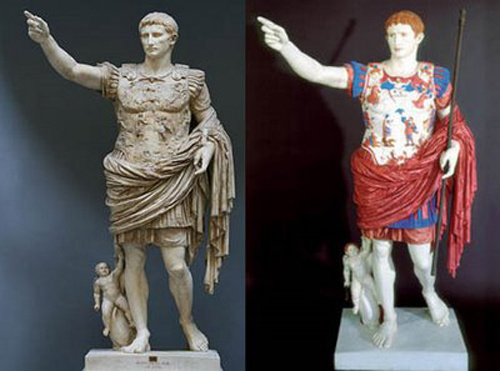Today, when we think of classical art, few things are as dignified and tasteful as the crumbling statues of ancient Greece. There’s something about the bare, weathered stone pieces, so full of history, that elevates them above mere decoration. In fact, we’re so used to the way they look now that it’s hard to imagine what they might have been like when the pieces were first made.
The article however shows how ultraviolet light can be used to reveal what they were like, or more importantly, what the artists of the time intended them to look like. All of a sudden, the statues seem a lot less dignified and very much like something we might find in a modern amusement park. Take this for example:

The ultraviolet light works by causing the organic compounds used in the original paint to fluoresce. Even in cases where it is difficult to figure out what the original hues were, researchers can also use infrared and x-ray spectroscopy to discover what materials were used to make the paints and derive what the colors must have been from there. It turns out that the Greek artists tended to use very tacky and loud colors which we wouldn’t find tasteful at all.
As one commenter on the article notes, it makes us wonder if someday far in the future, archaeologists might unearth the remains of Disneyland and think that all those figures and decorations represented the pinnacle of our art and were objects of great veneration.